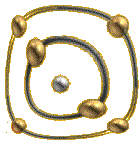AwayMave Home Page | IEPPP Home Page | 406 Module Home Page | University Home Page | VP Home Page

Reason, nature and the human being in the West
Module documents
AwayMave Home Page | IEPPP Home Page | 406 Module Home Page | University Home Page | VP Home Page |
||
 |
||
Reason, nature and the human being in the WestModule documents |
||
You are asked to prepare at least 2 short written pieces (guideline: 2500 words each) or one longer piece (guideline: 5000 words).
You are asked to devise a topic yourself, chosen in the light of your interests, but also what reading material you have access to. I have made some suggestions here, referring to initial reading in each case: but getting hold of some of these things - perhaps all of them! - could be very difficult or impossible for you. Think of relying on the books you have to hand - eg Plumwood plus whichever of Passmore, Thomas, Taylor or Foucault you have managed to get hold of. Check your idea for a title for your essay with me beforehand.
(If you can make use of an academic library: in the suggestions that follow the names in the brackets refer via the authors to books or articles listed in the Booklist. These are meant to be possible starting points for your reading on that topic)
1. What was Gilbert White trying to do?<br>
(White; Foucault - 1970 Ch. ; Thomas - *, pp. 51-70; Ritvo - 1990 Intro; Sloan)
2. What was Cuvier trying to do?
(Foucault - 1970, Ch. 7 esp. pp. 226-232 & Ch. pp.263- 279; Coleman - 1977; Mayr - 1982)
3. What if anything is the difference between the mechanistic view of animals taken by many in the 17th Century and the mechanistic approach of the 19th Century?
(Foucault - 1970, Ch. & pp. 263-279; Sloan 1990; Coleman - 1977; Debus - 1978; Kearney - *, Ch. 5)
4. Is there any marked discontinuity between present day biology and that of the 19th Century?
(Foucault - 1970, ch. 7 & 8; Coleman - 1977; Allen - 1978; Morgan - *; Mayr - 1982)
5. To what extent do changes in public attitudes to animals and plants reflect changes in the economic order of society? (Foucault - 1970; Passmore - 1974; Serpell; Rupke; Thomas)
6. What was Aristotle's conception of an animal, including its place in "nature"?
(Boylan - 1983; Nussbaum - 18; Pratt - 1982)
7. Harriet Ritvo has attempted to write, or contribute to, a "sociology of animals" in the 19th Century. Can you apply the same approach to another period, including plants if appropriate? (Ritvo - 1990)
8. What transformation did Darwin bring about in human being's conception of themselves and their place in nature?
(Darwin; Young; Coleman - 1977; Mayr - 1982; Oldroyd; Hodge - 1990)
9. What determines how cruel a culture is to animals?
(Ritvo - 1990; Rupke; Kearney, ch. 5; Passmore - 1974)
10. How was it possible for Erasmus Darwin to be serious about writing up his scientific findings in poetry?
(Goethe - 1978)
Revised 07:04:04
IEPPP 406 Home Page
Reason, Nature and the Human Being in the West
Part of a module of the MA
in Values and the Environment Lancaster University
Send Mail to the Philosophy
Department